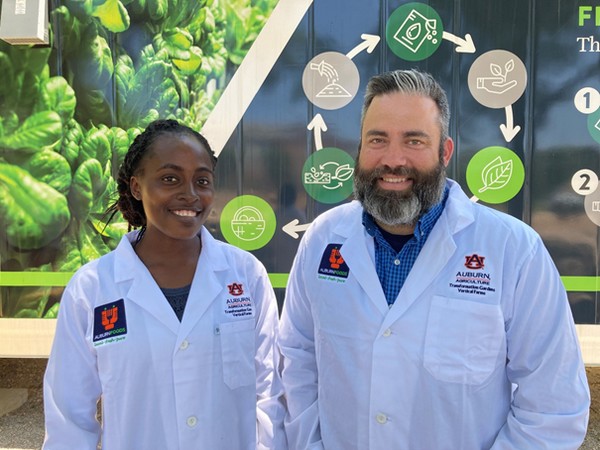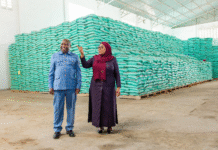A Zambian-born academic, Dorcas Lukwesa, in-between her studies, designed a mobile aquaponics system using one of the most available materials found in Zambia, the bamboo.
Bamboos are a diverse group of evergreen perennial flowering plants.
Lukwesa first heard about aquaponics when she was doing her bachelor’s at the Earth University in Costa Rica.
She later came in contact with Associate Professor of Horticulture Daniel E. Wells at Auburn University, Alabama, the US who offered her an internship in 2021.
While Lukwesa’s research project is focused on refining the design for her mobile aquaponics system, she participated in Wells’ overall research programme, which focuses on controlled environment agriculture
“In Zambia, as in many other countries, women are at the forefront of providing food for their community. However, they rarely have secure rights to register land in their own names. Aquaponics could help them to grow food despite not having that,” Lukwesa, now the founder of Mobile Aquaponics, said.
“In this programme, I have the opportunity to finalise my aquaponics design with the help of my professor’s feedback. My curriculum focuses on high-tech growing, vertical farming.
“The idea is to learn from advanced systems and the exposure you get here and use that knowledge in Zambia to grow with the resources available. When I return to my community, I will be able to use my expertise to grow efficiently. The university gives us the resources to build something we will use for real.”
In Zambia, Lukwesa is in the process of building prototype systems of her aquaponics system.
“In Zambia, aquaponics is hardly practiced, as all farmers depend on rain to nurture their crops. However, with the increasing droughts, changes in rain patterns, water scarcity we are seeing, many farmers lose their crops,” she said.
“I have seen people cry after they realized that almost all their investments are gone due to droughts or other related issues. For that reason, aquaponics will offer growers more stability and a proper income since it is water efficient. It also allows people to grow more vitamin-rich crops such as lettuce, spinach, kale, and tomatoes.”
Lukwesa is not focusing on what is technically possible, but rather on what is available in her community, and she is constantly in contact with her community back in Zambia.
“High tech systems need a lot of power, which is rather expensive and inconsistent in the country. However, what we do have in Zambia is unlimited sunlight. That’s why we aim to use that to the fullest potential.”









